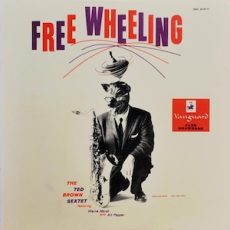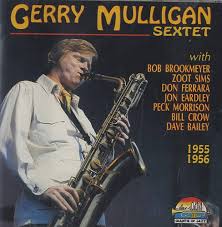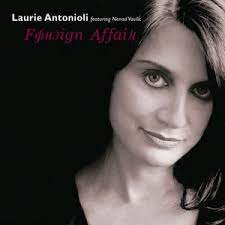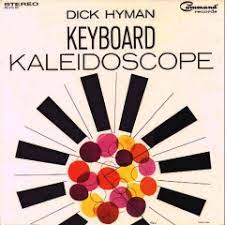
Requisites
Free Wheeling ~ The Ted Brown Sextet Featuring Warne Marsh and Art Pepper | By Eddie Carter
I first heard a track from Free Wheeling (Vanguard VRS-8515) by The Ted Brown Sextet a few years ago on Sirius XM’s Real Jazz. I’ve loved the tenor sax since I was a child, so I was ecstatic to discover a new musician and finally get a copy. It was Ted’s first release as a leader, and the music within it is an excellent representation of West Coast jazz. During his career, he recorded with Lee Konitz, Hod O’ Brien, and Lennie Tristano, and on this date, he’s joined by Art Pepper on alto sax, Warne Marsh on tenor sax, Ronnie Ball on piano, Ben Tucker on bass, and Jeff Morton on drums. My copy is the 1975 King Record Company Japanese Mono reissue (Vanguard GXC 3121M).
Side one starts with the front line’s brisk introduction to Aretha by Ronnie Ball. Ronnie infuses the first solo with energy and agility. Art and Warne follow in successive order, hitting an ideal groove. Jeff is up next with a brief but lively finale ahead of the sextet’s theme’s restatement and climax. The ensemble moves the needle upward for Long Gone by Warne Marsh. The front line sets the mood in the opening chorus; then, Ted makes his entrance first for an exciting solo. Warne steps up next and takes the reins. Ronnie follows with a swift reading; then Art gets right to work and cooks. Jeff signals the end with a brief comment into the closing chorus and ending.
Once We Were Young by Walter Gross is a lovely song that Ted begins with a dreamy melody that Warne picks up in the background. Ronnie comes in for a short, sensitive interlude until both horns return for a beautiful theme restatement and tender climax. Foolin’ Myself is the creation of Andy Razaf and Thomas “Fats” Waller. The rhythm section starts with a mid-tempo introduction, segueing into the catchy melody. Ronnie takes the lead and gives an enchanting interpretation. Ted begins the second statement, then is joined by Art and Warne in succession for a hauntingly sincere reading that concludes softly.
The sextet takes us to Avalon by Al Jolson, Buddy DeSylva and Vincent Rose. The song’s title comes from a California city, and the front line kicks off the lively melody together. Ted goes first and makes a vigorous opening statement. Jeff succeeds him and delivers the goods in a spirited conversation with the leader before the group reconvenes to take the song out. On a Slow Boat To China by Frank Loesser starts Side Two with the sextet slowing the beat slightly for the opening chorus. Ted is thoroughly at ease in the first interpretation, and then Ronnie takes a few lovely choruses. Ted and Ronnie have a short exchange preceding the song’s conclusion.
Crazy She Calls Me by Carl Sigman and Bob Russell begins with the ensemble’s moving, deeply satisfying theme. Warne is the first soloist, and from his horn, notes of velvety softness flow. Ronnie expresses the song’s sentimentality next. Ted handles the following reading with a good deal of warmth, and then Warne returns to help bring the song to a gorgeous climax. Broadway by Wilbur H. Bird, Teddy McRae and Henri Woode opens with the front line’s collective melody. Warne, Art, and Ted are the first three in the solo spotlight, followed by an ensemble chorus together. Ronnie takes a splendid reading next, then Ben has a short summation as Jeff keeps perfect time toward the finale.
Arrival by Ronnie Ball is our final stop in this cool jazz session, and it’s off to the races from the start of the melody. Art leads the way with a swift opening statement. Warne delivers the second solo fleetingly; then, both horns make quick work of the finale in an exchange with Jeff before taking the song out. Alfred Marx supervised the original session, and the Vanguard Recording Society, Inc. recorded it. The sound quality of this reissue is exceptionally good and for a vintage fifties recording, exceeded my expectations. The music is also excellent, as is the pressing, and the vinyl is noticeably quiet.
There is one error on my copy, which doesn’t appear on the original album. The composers for Crazy She Calls Me are incorrectly listed on the Side Two label as the team of Cahn and Mayer but actually are Carl Sigman and Bob Russell. The album cover is also one of the strangest I’ve ever seen, but don’t let that dissuade you from checking out Free Wheeling by The Ted Brown Sextet on your next record hunt. If you’re a fan of cool jazz or West Coast Jazz, it’s a great-blowing session with Warne Marsh and Art Pepper and a wonderful introduction to a musician deserving of wider recognition. To borrow a quote from the great Vin Scully in game one of the 1988 World Series, “Not a bad opening act!”
~ Avalon – Source: JazzStandards.com ~ Broadway, Crazy She Calls Me, On a Slow Boat To China – Source: Wikipedia.org © 2024 by Edward Thomas Carter
More Posts: choice,classic,collectible,collector,history,instrumental,jazz,music,saxophone

Daily Dose Of Jazz…
Don Ferrara was born on March 10, 1928 in Brooklyn, New York and began playing trumpet at the age of ten, avidly listening to jazz and swing era giants on both radio and records. Roy Eldridge became and remained his single most important influence on his playing. In 1945 he had a brief stint with Jerry Wald’s band, then moved over to George Auld.
Enlisting in the Army in mid-1946, during this time he played in a band with bassist Red Mitchell, drummer Howie Mann and met Warne Marsh. It was through him that he became interested in the work of Lennie Tristano. After his discharge he began studying with Tristano, something he continued to do until the 1960s. During this same period, Don taught and played in the big band assembled by Gene Roland for a Charlie Parker recording session, though he missed the recording session because of a date clash. He then joined Woody Herman’s Third Herd. After a year he returned to New York where he gigged and taught and continued his own studies with Tristano.
In the mid-1950s New York he played and sometimes recorded with various bands, including those of Lee Konitz and Gerry Mulligan. In the early Sixties Ferrara played a regular engagement with Tristano at New York’s Half Note Club and during the rest of the decade continued with his teaching. The early 70s, had him relocating to the west coast and joining Gary Foster’s teaching studio. He continued to live and teach in California through to the 90s, most of his teaching work being conducted at long range through audio cassettes.
Trumpeter Don Ferrara, who was also a skilled and highly individual soloist, died on January 18, 2011 in San Diego, California.
More Posts: history,instrumental,jazz,music,trumpet

Daily Dose Of Jazz…
Laurie Antonioli was born on March 9, 1958 in Marin County. California. At the age of sixteen she began playing guitar and performing primarily her own original music as well as that of the singer-songwriters of the era. In 1975 she won the American Songwriters Contest for high school students, studied jazz at Mt. Hood Community College in Gresham, Oregon and Cal State Long Beach. She took private lessons from Mark Murphy and Joe Henderson.
After graduation, Laurie continued composing and performing. In 1980 she toured Europe for eight months with New Orleans saxophonist Pony Poindexter. When he suffered a stroke, a record date in Paris with pianist Kenny Drew was canceled and they were unable to finish out their tour. Laurie brought Pony back to California where she lived and led her own bands based out of San Francisco.
1985 saw Antonioli signing with Catero Records and her first album was the live two-track Soul Eyes, with the title song given to her by composer Mal Waldron. She was accompanied by pianist George Cables. After a hiatus from music, she settled in Vienna, Austria from 2002 to 2006 and began recording again.
Her Nabel Records album Foreign Affair was a Balkan jazz hybrid recorded in Slovenia with musicians from Serbia, Albania, Germany, and the U.S. It was well received in Europe. Her next album The Duo Session enlisted Richie Beirach where she wrote lyrics to his compositions. Laurie also wrote lyrics to some Miles Davis tunes and free improvisation pieces. This recording was also well-received but like Foreign Affair was known primarily to European audiences.
As an educator she held the position of Professor of the Vocal Department at KUG University’s Jazz Institute in Graz, Austria from 2002 to 2006 while living and performing in Europe. Antonioli was offered a position at the California Jazz Conservatory in Berkeley, California as the school’s vocal program director and created an eight-semester vocal performance curriculum. Singer and record producer Laurie Antonioli, who between 1985 and 2018 she has recorded seven albums, continues to perform and record.
More Posts: educator,history,instrumental,jazz,lyricist,music,vocal

Daily Dose Of Jazz…
Richard Hyman was born in New York City on March 8, 1927 and grew up in suburban Mount Vernon, New York. His older brother, Arthur, owned a jazz record collection and introduced him to the music of Bix Beiderbecke and Art Tatum. Trained classically by his uncle, concert pianist Anton Rovinsky, who taught him touch and a certain amount of repertoire while he pursued Chopin on his own.
Enlisting in the U.S. Army in 1945, Dick was transferred to the U.S. Navy band department. After leaving the Navy he attended Columbia University where he won a piano competition with the prize being 12 free lessons with swing-era pianist Teddy Wilson. It was during this period Hyman fell in love with jazz.
During the 1950s Relax Records released his first two solo piano versions of All the Things You Are and You Couldn’t Be Cuter. Hyman recorded two honky-tonk piano albums under the pseudonym Knuckles O’Toole and recorded more as Willie the Rock Knox and Slugger Ryan.
In the 1950s and early 1960s Dick worked as a studio musician and performed with Tony Bennett, Perry Como, Guy Mitchell, LaVern Baker, Ruth Brown, Mitch Miller and many more. He played with Charlie Parker for Parker’s only film appearance and had a stint as music director for Arthur Godfrey’s television show from 1959 to 1961.
As a composer, arranger, conductor, and pianist he worked on eleven Woody Allen films as well as other films like Moonstruck and Scott Joplin. Hyman composed and performed scores for ballet and dance companies. In the 1960s, Hyman recorded several pop albums on Enoch Light’s Command Records using the Lowrey organ and then the Moog synthesizer.
Between 1970 and 2014 he recorded 112 albums as a leader, sixty-two as a sideman, and arranged four albums for Count Basie, Trigger Alpert and Flip Phillips. He has been a guest performer at jazz festivals and concert venues around the world. In 1995 pianist and composer Dick Hyman moved his wife Julia permanently to Venice, Florida.
More Posts: arranger,bandleader,composer,history,instrumental,jazz,music,piano

The Jazz Voyager
Heading to the City of Brotherly Love for the next stop on the voyage of this traveller. The place I will be seated in for this week’s jazz performance is nestled in the Spring Garden neighborhood of Philadelphia and is called the South Jazz Kitchen. It’s known for the coolest jazz and Southern cuisine in the city.
Vibraphonist Chien Chien Lu and bassist Richie Goods collaborate on this stage for three nights with two shows per evening. When you put together an emerging contemporary percussionist and composer with the youngest bassist ever inducted into the Pittsburgh Jazz Hall of Fame and you get an exciting show and one you will never forget.
The venue’s address is 600 N. Broad Street, Philadelphia, Pennsylvania 19130. For those who want more info go to https://notoriousjazz.com/event/chien-chien-lu-x-richie-goods.
More Posts: adventure,bass,club,genius,jazz,music,percussion,preserving,travel,vibraphone



